All their homes are a stage
MacTheatre’s actors, dancers, singers modify their craft and their expectations for the year as curtains rise in quarantine
Photo courtesy of Helena Laing
Senior Helena Laing films her auditions for college musical theatre programs. Photo courtesy of Helena Laing.
In a time before the pandemic, students, parents, teachers and dedicated community members came in droves to see the biannual musicals at McCallum. The McCallum Arts Center was packed to the brim on show nights. Now, however, as the MAC sits empty in a time when it’s not safe to put on these well-loved shows, performers and patrons alike wonder when and where they will get their theatre fix.
McCallum actors, singers, dancers and technicians love their craft. These students dedicate themselves to about 20 hours a week of rehearsals during the run of a musical. Casts are large, often reaching about 50 students. But with the COVID-19 pandemic making musicals impossible to put on safely, students have taken their craft from the stage to their computers.
Compared to the day-to-day assignments on which she now spends her time, junior Grace Hickey longs for the days when she could dedicate herself to a show and see her hard work pay off in the end.
“What I miss about musicals the most right now is the sense of fulfillment you get out of putting in all this hard work and then at the end we have this beautiful, shiny, gorgeous product,” Hickey said. “Because right now, we’re putting in the work, but we have no product and we have nothing to work towards, and it is not motivational.”
Hickey believes that McCallum athletics and McCallum arts should be using the same standard to determine when to resume in-person activities. AISD athletics were cleared to return to socially-distanced in-person practices and games from late summer while AISD arts weren’t cleared for in-person meetings until Oct. 5. While the McCallum football, volleyball and basketball seasons are in full swing, McCallum theatre is yet to embark on any sort of in-person event.
“I know that sports are able to go back to almost normal because they’re already outside, but I think theatre should modify and maybe move outside, or to a big gymnasium, with a small cast,” Hickey said. “Whatever that may be, I think we deserve equal treatment.”
But the absence of a fall musical isn’t the only change the MacTheatre students have experienced this semester. The process of auditioning for collegiate musical theatre programs has also changed dramatically.
Senior Helena Laing has been in high-profile roles throughout her four years in MacTheatre, most recently playing the prima ballerina Grushinskaya in Grand Hotel. As Laing applies to college for musical theatre, Laing is adapting to a new pandemic-friendly virtual format. Laing said that this means prescreens, or videos sent in to colleges in order to apply for an audition, have added pressure.
“All of my auditions will be virtual this year,” Laing said. “Because of this, they are kind of holding prescreens to a higher standard which makes filming a little bit harder. Some schools that had not done prescreens before are doing them now. This process has been something that I had watched others go through and knew would be stressful, but adding a pandemic on top of it has been stressful.”

Laing said that although there is added stress with this virtual process, there are pros to balance out the cons.
“Since we have virtual auditions I don’t have to spend all this money on traveling to the campus, getting a hotel and getting food,” Laing said. “This process is very very very expensive so not having to travel to campuses, Chicago, New York and Dallas has taken a huge load off our shoulders.”
Laing also said that she is happy to be able to add some levity and fun to her audition process with out-of-the-box application elements that allow her to show off her personality. In addition to two songs and two monologues she is preparing, Laing is working on some more creative pieces that she came up with during quarantine as well.
“Some schools also ask for a pop song to get a feel for our personality and what we like to jam out to,” Laing said. “We also prepare a one-minute dance of any style we want. Lastly we have a wild card, which is a one minute video of whatever we want. For mine I am doing a tap number to Savage remix by Megan Thee Stallion and Beyoncé.”
McCallum dance teacher and dance director for the musicals Natalie Uehara is also finding fun and creative ways to keep her craft going at home. Last Saturday, Uehara hosted the fourth of nine weekly tap classes through the McCallum Musical Theatre & Acting Preparatory Program, or MTAPP. The classes are open to students from ages 12 to 18 and are conducted entirely over Zoom.
Students Zoom-ed in to the class last Saturday from their garages, bedrooms and backyards and spent an hour learning rhythms, steps and combinations that catered to their multiple skill levels. Uehara said of the first tap class after a long hiatus that she loved the opportunity to see her students’ faces again.
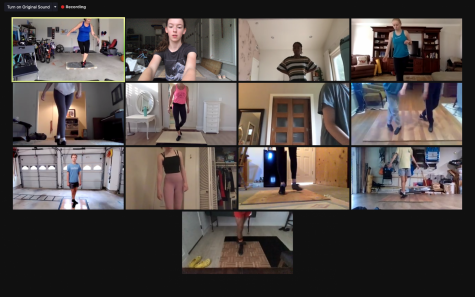
“It was so epic,” Uehara said. “Since the summer, it’s been almost six weeks since the summer classes… coming back to it after doing it for a while… is always really invigorating. Seeing everyone’s faces again was great.”
Uehara does concede that there are challenges since tap is a rhythmic art and she is unable to hear her students’ rhythms. But ultimately, she appreciates connecting with her students no matter what.
“I can’t hear anyone’s taps unless we do, like, a spotlight, and even then, the Zoom settings just make it hard to hear actual taps,” Uehara said. “So that part is not great, but it’s still nice to connect with music, and even though you’re not seeing it in real time on Zoom, it still makes you feel a little more connected than if we weren’t doing it.”
Uehara explained that human connection is a big part of why she is a teacher, so it has been a challenge to continue to teach in a more disconnected way.
“The reason why we’re teachers is because we’re passionate about it,” Uehara said. “And most of that passion comes from the connection with the students. And, so, when it’s a black screen, it’s like that connection is not there.”
Another way that theatre students are keeping up their craft is through a mentoring program in their after-school production class. Students may be mentored by Uehara, theatre director Joshua Denning or technical director Kristen Vandenburg.
Uehara hopes that this time away from constant rehearsals and performances for both theatre students and directors will give everyone a chance to recharge and find the right balance of workload in theatre.
“I do appreciate [that] the pandemic… feels like a little bit of a reset for everything because we were in such a grind,” Uehara said. “And I think especially for theatre, and just in my conversations with Mr. Denning about how hard he works, and how hard everyone in the department, including the students, works, it’s kind of like, ‘OK, we can still do theatre at a high level without killing ourselves.’ I think that part is good, so when we are able to go back, I think there will be a little more of a balance when it comes to that. I don’t know, but I hope.”
Theatre director Joshua Denning agrees that artists all over the world are taking this time to reflect on how hard they work.
“I think artists in general are stepping back, and taking stock and charting a new course right now, rather than just grinding themselves through the machine of the course that they thought they should be on,” Denning said. “I think everyone’s deciding new directions to go in right now.”
As actors take stock of their work thus far and reminisce on past performances, they will continue to move forward however they can while confined to their homes. After all, the show must go on.
Your donation will support the student journalists of McCallum High School. Your contribution will allow us to purchase equipment and cover our annual website hosting costs.



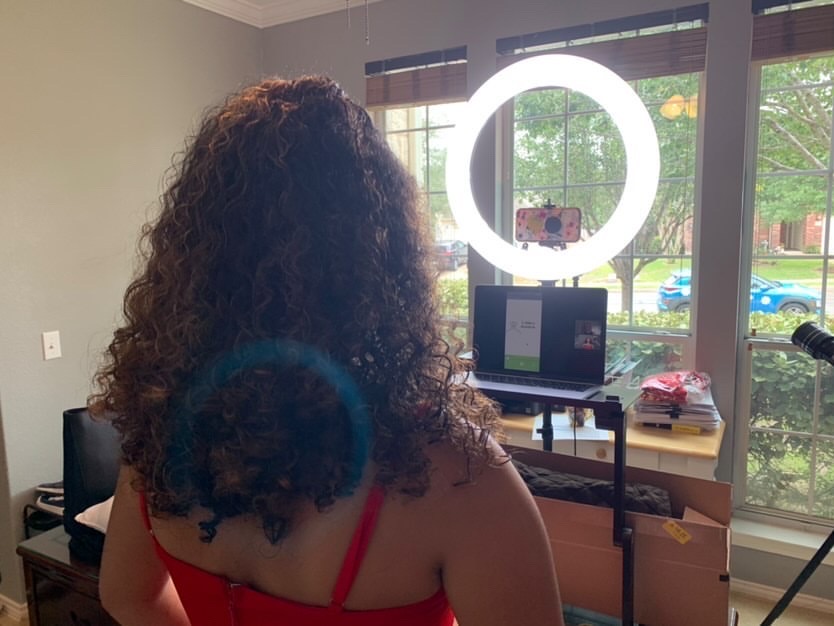
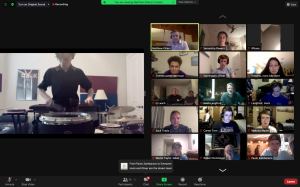
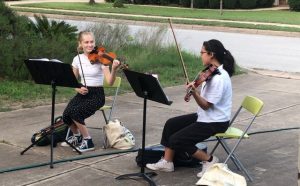
![After playing selections written by Beethoven, Chopin, Liszt and Debussy, Bodoh performed an an encore, "El Coqui,” a Puerto Rican danza, with her mother, accompanying her on the guitar. “['El Coqui'] was special to me because I'm half Puerto Rican, so it was a cool way to honor my Puerto Rican heritage,” Bodoh said.](https://macshieldonline.com/wp-content/uploads/2020/08/117393929_667455193859621_7481716337531423737_n.jpg)
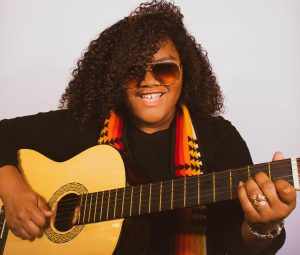

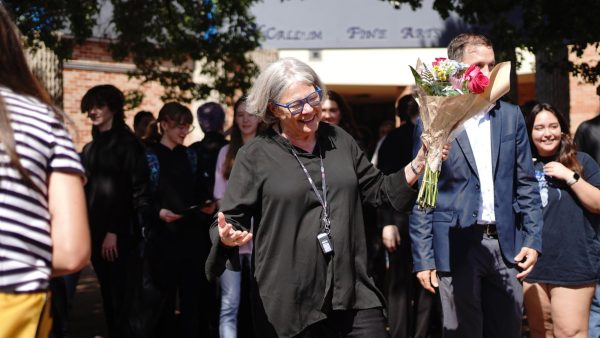
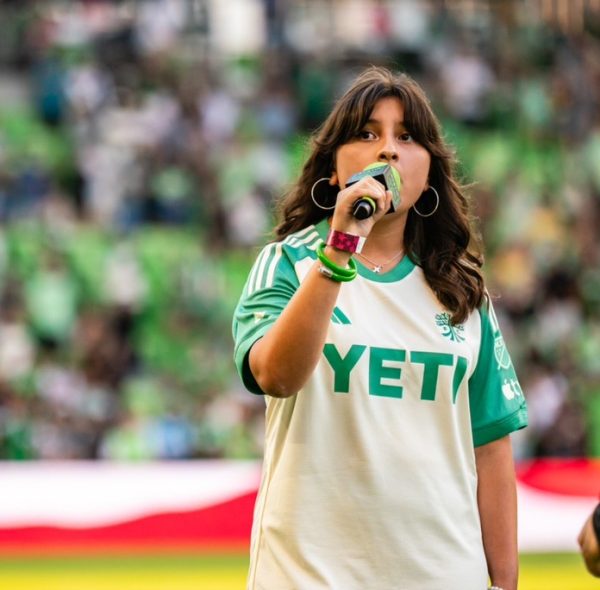

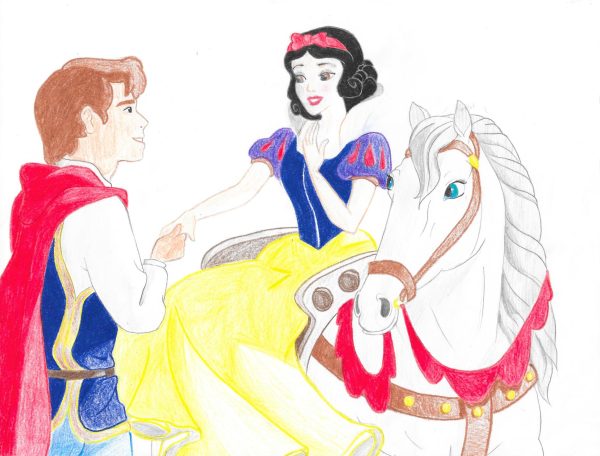
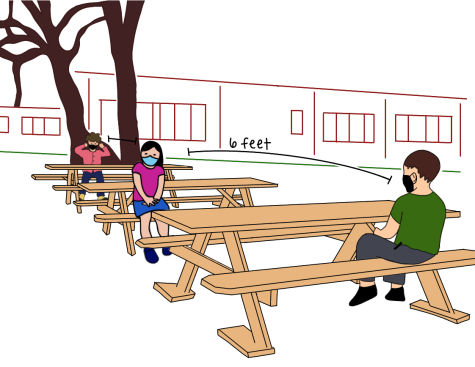

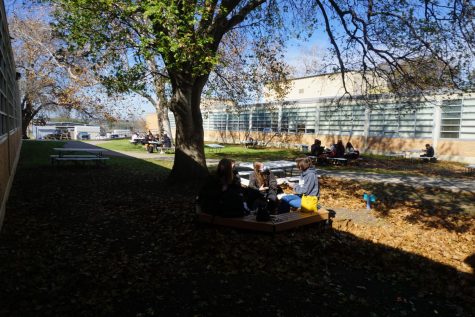
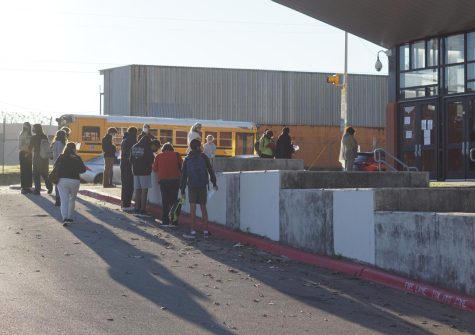

Ariana Mendez • Nov 3, 2020 at 12:37 am
I really enjoyed reading your article. The way you used four different aspects that are under the same umbrella was really creative and intriguing. My favorite part that you covered was the college auditions that you have to do from home. I really liked how you found the positive of having to do auditions from home by stating that since you do not have to travel in person, it takes a lot of the expenses off of the student’s shoulders. I also enjoyed you using two different images inside of the article, one of the viewpoints of what the colleges are going to see and the other behind the scenes.